Texas's 8th congressional district
| Texas's 8th congressional district | |
|---|---|
|
Texas's 8th congressional district - since January 3, 2013. | |
| Current Representative | Kevin Brady (R) |
| Distribution |
|
| Population (2015) | 802,187[1] |
| Median income | 56,919[2] |
| Ethnicity |
|
| Occupation | |
| Cook PVI | R+29 (2014) |
Texas District 8 of the United States House of Representatives is a Congressional district that includes Montgomery County and Walker County. It includes much of the northern outlying areas of metro Houston. The current Representative from District 8 is Kevin Brady and has been since 1997. For the 2014 election cycle Craig McMichael, a veteran of the Marine Corp, and network engineer had challenged and lost to incumbent Kevin Brady in the Republican Primary. In the 2014 General Election, Brady faced off against the Libertarian Party candidate, Ken Petty of Spring, Texas, who won his nomination in the Libertarian District Convention. No Democrat ran. In the 2016 election, the 20-year incumbent will be challenged by 3 challengers: Andre Dean, Craig McMichael, and Steve Toth.
History of Texas's 8th District
Texas received an eighth congressional district through reapportionment in 1881 as a result of population growth reflected in the 1880 Census and in 1883, James Francis Miller, a Democrat, was elected its first representative. From 1882-1892 the district was located in South Central Texas between Houston and San Antonio and was represented by Democrats. After 1893, the district was located in North Texas and was represented by a Republican representative from Fort Worth and then a Democrat from Weatherford. After the redistricting of 1902, the district shifted to Southeast Texas and the area outside of Houston and was represented by Congressmen from Huntsville, Hempstead and Richmond. From 1910-1966, the 8th district comprised all of Harris County and the city of Houston.
The district was redrawn mid-decade in 1966 after the Supreme Court ruled in Wesberry v. Sanders two years earlier that congressional district populations had to be equal or close to equal in population. As a result, Houston was split between the 7th, 8th and 9th districts. For the next 17 years, the 8th was anchored by northern Houston.
By the 1970s, the 8th district was beginning to move away from its traditional Democratic roots, and in 1980 it elected a Republican congressman, Jack Fields, over liberal seven-term incumbent Bob Eckhardt. After the 1980 Census, the 8th district was pushed further north to include conservative areas of northern Harris County (such as Fields' home in Humble) as well as the wealthier portions of Montgomery County, The 8th district's borders changed drastically in the 1990s round of redistricting, which was orchestrated by the Democratic-controlled state legislature as well as then-Congressman Martin Frost, the senior Democrat in the congressional delegation. The new 8th district was designed to pack in as many Republicans as possible and was described by some critics as the "dumbbell district" because of its strange shape. The western half of the district contained parts of Waller, Austin, and Washington counties, as well as much of Brazos County, which is home to the conservative bastion Texas A&M University. The eastern half of the district took in nearly all of now-heavily Republican Montgomery County, as well as Republican areas in northern Harris County. The two halves were joined together by a narrow tendril in Waller County. Fields continued to represent the district until his retirement in 1996, when he was succeeded by fellow Republican Kevin Brady.
The 8th district was made somewhat more compact after the 2000 census, taking in nearly all of Montgomery County and most of northern Harris County. However, it changed dramatically during the 2003 redistricting plan engineered by then-House Majority Leader Tom DeLay, a Republican from Texas's 22nd district. DeLay wanted to dislodge 4-term Democratic Congressman Jim Turner from the neighboring 2nd district, who represented a district located in East Texas that was predominantly rural and had begun moving away from its Democratic roots (Bush received 63% of the vote there in 2000). Brady's 8th district lost most of its share of Houston, instead absorbing nearly all of the southern portion of the old 2nd district. Although geographically the new 8th was more Turner's district than Brady's, half its population came from Brady's base in Montgomery County, which has as many people as the rest of the district combined. The new 8th district was so heavily Republican (Bush would have carried it in 2000 with 69% of the vote) that Turner declined to run for reelection. Brady has been reelected from this district four times with only nominal opposition.
2012 redistricting
Due to redistricting in 2012, Texas's 8th district lost its entire eastern half, with Orange, Newton, Jasper, Tyler, Hardin, Polk, and Liberty counties being removed from the district. Counties added include all of Trinity, Houston, Grimes, Madison, and the southern half of Leon County.[3]
Representatives
District borders are periodically redrawn and some District residences may no longer be in the 8th District.
| Representative | Party | Term | District Residence | Note |
|---|---|---|---|---|
| District created | March 4, 1883 | |||
 James Francis Miller James Francis Miller |
Democratic | March 4, 1883 – March 3, 1887 | Gonzales | Declined renomination |
 Littleton W. Moore Littleton W. Moore |
Democratic | March 4, 1887 – March 3, 1893 | La Grange | |
 Charles K. Bell Charles K. Bell |
Democratic | March 4, 1893 – March 3, 1897 | Fort Worth | |
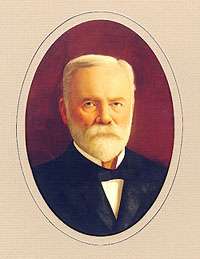 Samuel W.T. Lanham Samuel W.T. Lanham |
Democratic | March 4, 1897 – January 15, 1903 | Weatherford | Resigned after being elected Governor |
| Vacant | January 15, 1903 – March 4, 1903 | |||
.jpg) Thomas Henry Ball Thomas Henry Ball |
Democratic | March 4, 1903 – November 16, 1903 | Huntsville | Redistricted from the 1st district Resigned |
| Vacant | November 16, 1903 – November 17, 1903 | |||
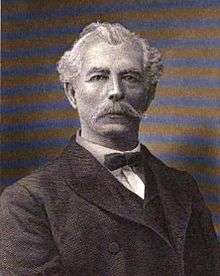 John M. Pinckney John M. Pinckney |
Democratic | November 17, 1903 – April 24, 1905 | Hempstead | Died |
| Vacant | April 24, 1905 – December 4, 1905 | |||
.jpg) John M. Moore John M. Moore |
Democratic | December 4, 1905 – March 3, 1913 | Richmond | |
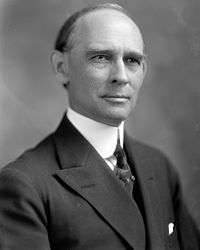 Joe H. Eagle Joe H. Eagle |
Democratic | March 4, 1913 – March 3, 1921 | Houston | |
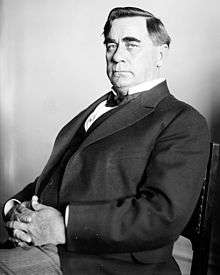 Daniel E. Garrett Daniel E. Garrett |
Democratic | March 4, 1921 – December 13, 1932 | Houston | Died |
| Vacant | December 13, 1932 – January 28, 1933 | |||
 Joe H. Eagle Joe H. Eagle |
Democratic | January 28, 1933 – January 3, 1937 | Houston | |
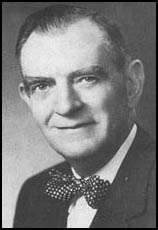 Albert Thomas Albert Thomas |
Democratic | January 3, 1937 – February 15, 1966 | Houston | Died |
| Vacant | February 15, 1966 – March 26, 1966 | |||
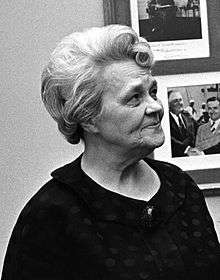 Lera Millard Thomas Lera Millard Thomas |
Democratic | March 26, 1966 – January 3, 1967 | Houston | Did not seek nomination |
 Bob Eckhardt Bob Eckhardt |
Democratic | January 3, 1967 – January 3, 1981 | Houston | Lost re-election to Jack Fields |
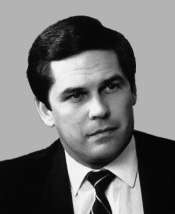 Jack Fields Jack Fields |
Republican | January 3, 1981 – January 3, 1997 | Humble | Retired |
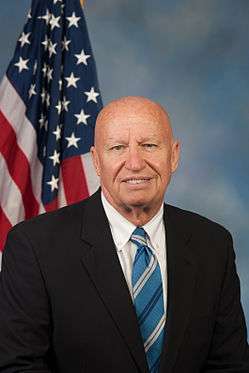 Kevin Brady Kevin Brady |
Republican | January 3, 1997 – present | The Woodlands | Incumbent |
Election results
| Party | Candidate | Votes | % | ± | |
|---|---|---|---|---|---|
| Republican | Kevin Brady | 161,257 | 79.5 | +6.9 | |
| Democratic | Kent Hargett | 36,566 | 18.0 | -6.8 | |
| Libertarian | Bruce West | 4,975 | 2.5 | -0.1 | |
| Party | Candidate | Votes | % | ± | |
|---|---|---|---|---|---|
| Republican | Kevin Brady | 207,128 | 72.56 | +5.3 | |
| Democratic | Kent Hargett | 70,758 | 24.78 | -7.9 | |
| Libertarian | Brian Stevens | 7,565 | 2.65 | +1.2 | |
| Party | Candidate | Votes | % | ± | |
|---|---|---|---|---|---|
| Republican | Kevin Brady | 105,665 | 67.27 | -1.63 | |
| Democratic | James "Jim" Wright | 51,393 | 32.72 | +3.02 | |
| Party | Candidate | Votes | % | ± | |
|---|---|---|---|---|---|
| Republican | Kevin Brady | 179,599 | 68.9 | -24.2 | |
| Democratic | James Wright | 77,324 | 29.7 | +29.7 | |
| Libertarian | Paul Hansen | 3,705 | 1.4 | -5.4 | |
Historical district boundaries

See also
References
- ↑ https://www.census.gov/mycd/
- ↑ https://ballotpedia.org/Texas%27_8th_Congressional_District
- ↑ "DistrictViewer - Texas Legislative Council". Gis1.tlc.state.tx.us. Retrieved 2012-05-29.
- Craig McMichael for Congress.
- Martis, Kenneth C. (1989). The Historical Atlas of Political Parties in the United States Congress. New York: Macmillan Publishing Company.
- Martis, Kenneth C. (1982). The Historical Atlas of United States Congressional Districts. New York: Macmillan Publishing Company.
- Congressional Biographical Directory of the United States 1774–present
Coordinates: 30°50′00″N 95°32′37″W / 30.83333°N 95.54361°W
.tif.png)